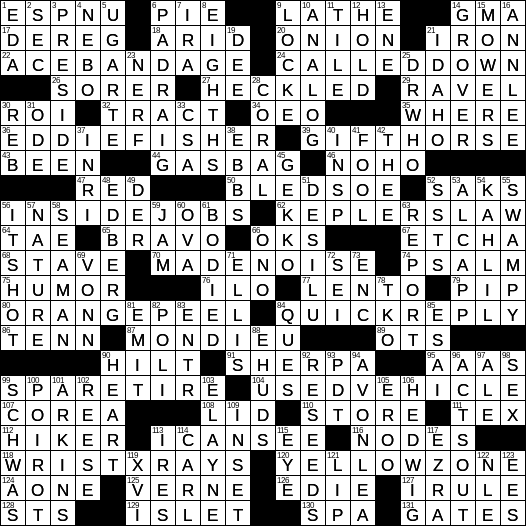


But some of the younger setters, who revere him as the master, take even greater liberties from time to time. Most of his Guardian faithful will tell you there never was, and never will be, a setter to match Araucaria. John was an orthodox Anglican minister, but in crossword terms he was a joyous heretic, who, strict Ximeneans might have considered, deserved to be burned at the stake. Others favour the far more libertarian style embodied in the work of John Graham, Araucaria of the Guardian, who died in November. He was one of a school that favoured strict rules for crosswords, which he embodied in a book call Ximenes On the Art of the Crossword, published in 1966. Ximenes was Derrick Somerset Macnutt, who taught me Greek at Christ's Hospital school, not a happy experience for either of us. The Observer was the pacemaker here, unleashing on its customers first Torquemada and, after him, Ximenes, both named after Spanish inquisitors. Over the years, ingenious hands have developed more and more techniques for making their solvers sweat. It's the cryptic and supercryptic, though, that are serious business. The quick is sometimes thought to be simple but that isn't always the case: a clue may simply say "draw", but that's a word whose alternative meanings command a whole column in any thesaurus. The art form has evolved in different ways in different countries, but here there are now essentially three varieties: the quick (as in today's Guardian Review,) the cryptic, below the weather on the penultimate page of this section, and the supercryptic, for ace solvers only, like Azed in tomorrow's Observer. Today's familiar black squares were in those days unknown. All you had to do was to fill in the answers to questions like "the plural of is" (3) and "what artists learn to do" (4) – even if one or two demanded more erudition ("the fibre of the gomuti palm", the answer to which was "doh".) Wynne's puzzle was shaped like a diamond. The then Manchester Guardian followed four years later, 13 months ahead of the Times.īut it also has to be said that crosswords today bear about as much resemblance to Wynne's pioneering number as does the Goldberg Variations to Chopsticks.

The first newspaper in Britain to use them seems to have been the Sunday Express in 1925.


 0 kommentar(er)
0 kommentar(er)
